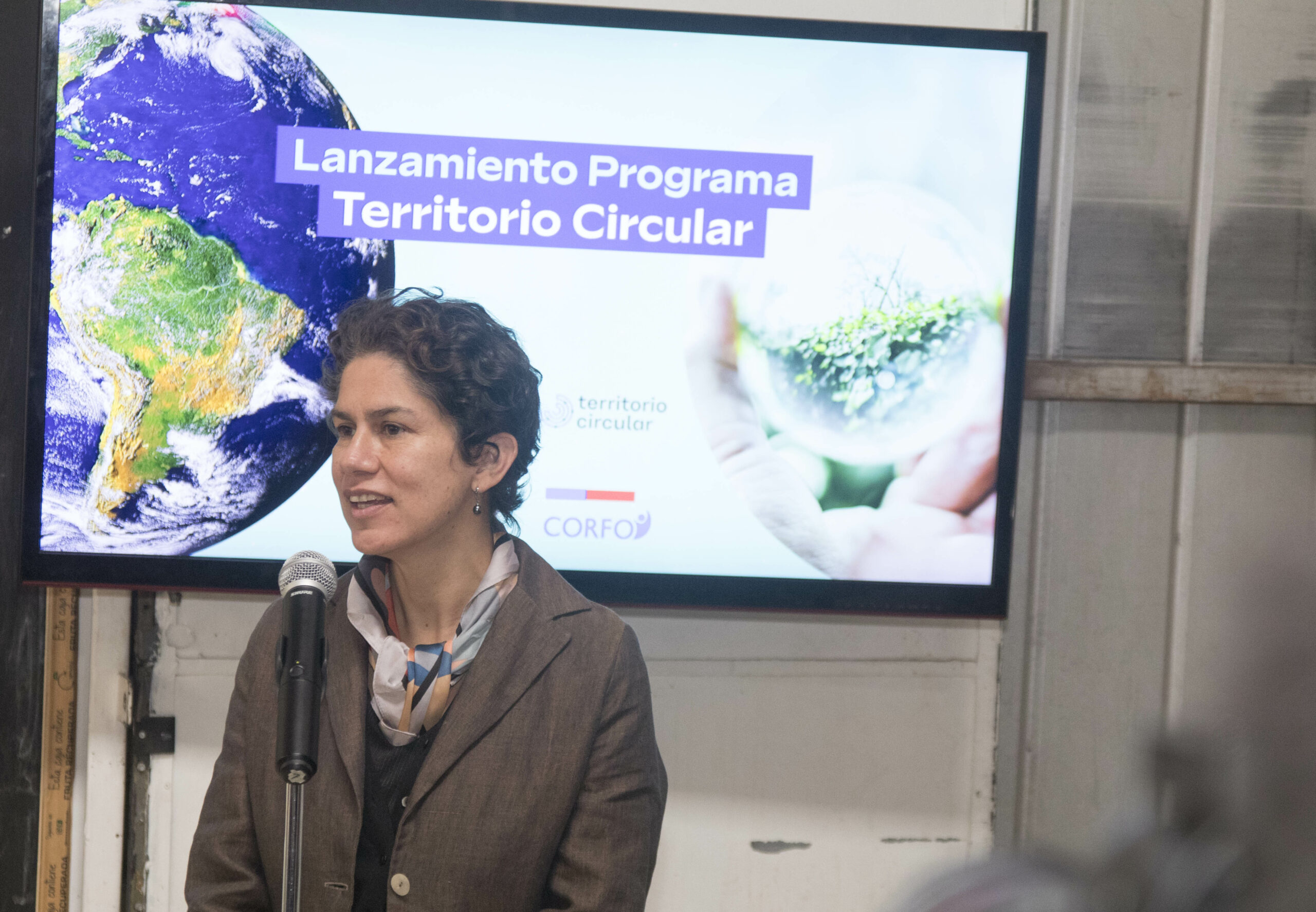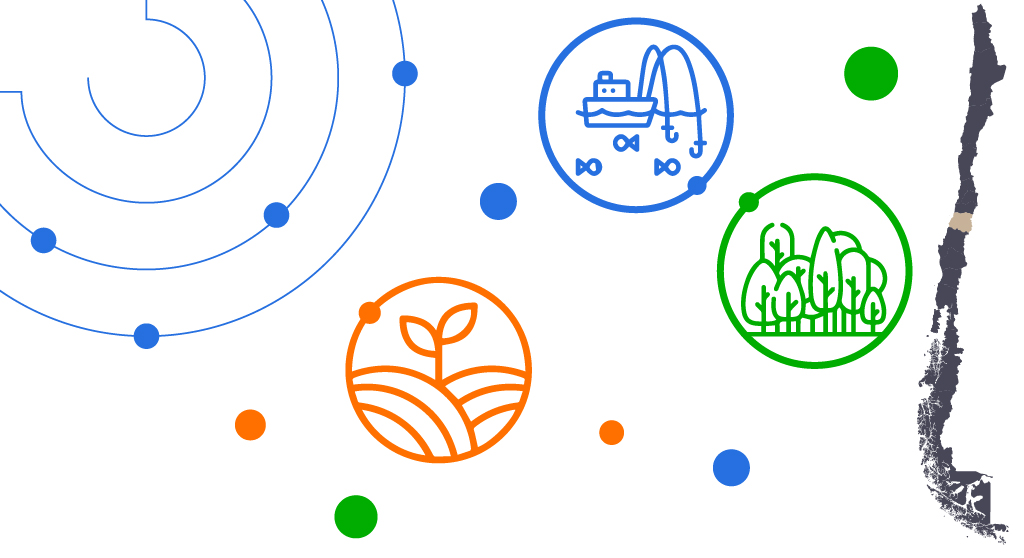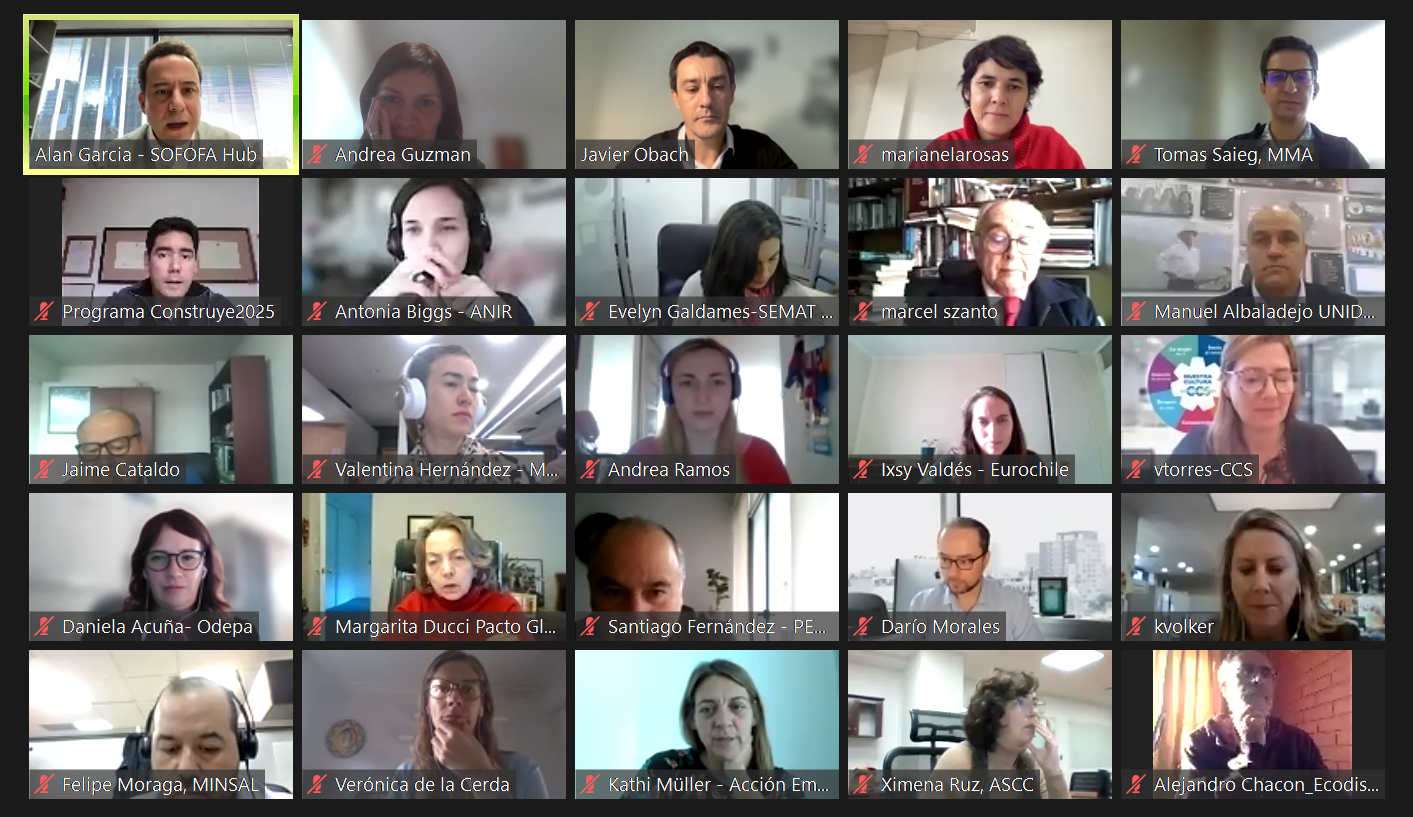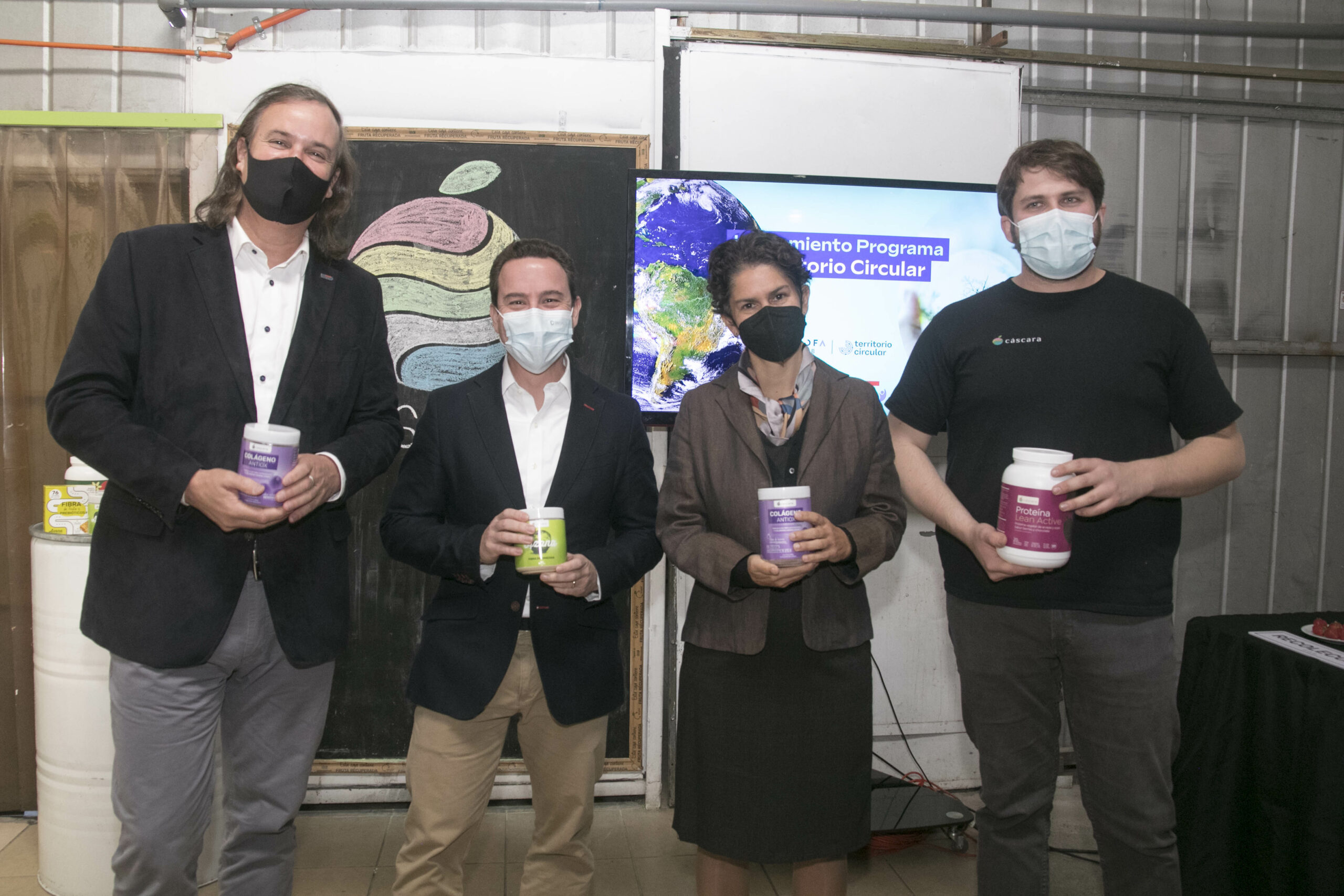Circular Territory Program Advances in Regions


Circular Territory Program Advances in Regions
Circular Territory Program Advances in Regions


Circular Territory Program Advances in Regions
Challenges and opportunities to boost circular economy in the region of El Maule


Challenges and opportunities to boost circular economy in the region of El Maule
Global Recycling Day, an invitation to Circular Economy


Global Recycling Day, an invitation to Circular Economy
The Advisory Council of the Circular Territory Program analyzed the main lines of action of this public-private initiative


The Advisory Council of the Circular Territory Program analyzed the main lines of action of this public-private initiative
Ministry of the Environment, CORFO and SOFOFA HUB launch circular territory to address actions of the Circular Economy Roadmap towards 2040


Ministry of the Environment, CORFO and SOFOFA HUB launch circular territory to address actions of the Circular Economy Roadmap towards 2040
It is a program promoted by CORFO and the Ministry of the Environment, and implemented by SOFOFA Hub, which —through collaborative work and public-private articulation— seeks to generate enabling conditions that contribute to an effective implementation of Chile’s Circular Economy Roadmap, promoting circular economy models that generate positive impact on the territories and their inhabitants.

To accelerate the transition to circular economy in Chile, promoting sustainable development in the territories through opportunities that link industry with the innovation and entrepreneurship ecosystem.
To identify and promote the implementation of circular projects, through the articulation of companies with innovation and local entrepreneurship ecosystems, that allow to increase efficiency in the use of resources, reduce environmental impacts, and generate positive effects on the territory and people.
To promote the generation of knowledge based on circular opportunities that enable and guide a more sustainable development in the territories.
To facilitate —in a practical way— the access to relevant information and success cases that inspire action, as well as the dissemination, follow-up and communication of the program’s progress.
To create enabling conditions that allow the promotion of fair, sustainable business models with positive impacts for the territory and its inhabitants.
To facilitate the implementation of circular projects through the articulation of companies with innovation and entrepreneurship ecosystems.
To disseminate the success stories, efforts and commitments of various stakeholders involved in the implementation of the Circular Economy Roadmap; as well as exchange the knowledge generated around Circular Economy.
To follow up on the various actions established in the Circular Economy Roadmap and to permanently oversee the Program’s actions.
Circular Territory has a governance comprised of multiple public and private stakeholders, trade associations, civil society institutions and academia, who through different Committees and working tables, coordinated by a technical secretariat, collaborate in the design, implementation and follow-up of different initiatives to achieve its proposed objectives.
The Executive Committee is the body responsible for conducting the program and delivering its technical instructions and strategic guidelines, in accordance with its axes, in alignment with the existing instruments and tools of the public and private sector.
The committee is permanently composed of the Ministry of the Environment, who acts as its chair, CORFO, the Agency for Sustainability and Climate Change (ASCC), the AVINA Foundation, G100, Hubtec and SOFOFA Hub, which will act as the Program’s managing entity.
Who are its members?
The Advisory Board’s objective is to strategically advise the Program, reviewing its proposed axes and actions. At the same time, it has a role of providing recommendations and support for the successful implementation of the Circular Territory Program, through an analysis and consensus-building work, from various standpoints.
Attributions of the Council